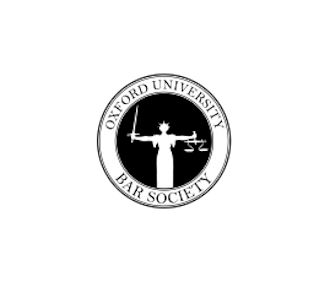Michael Wolkind KC | Media Videos and Articles

Norwegian Newspaper feature
Michael was on holiday in Norway when he was approached to feature in a long front page article about the ‘visiting famous British advocate’. He has seen an English translation and can confirm that the foreign language interview was kind and flattering throughout!

Shortlist: 'Protagonists in The Dock'
Shortlist magazine published an article where Michael gave his opinions on the criminality of famous fictional characters, condemning Mr Bean, freeing ET but giving his companion Elliot 10 years for riding outside the cycle lane.

BBC Interview: The Ian Watkins Case
Michael featured in a BBC interview about the miscarriage of justice for Joanne Mjadzelics and police failings in the Ian Watkins.

Interview with Vice Magazine
Michael is interviewed by Vice Magazine in a feature called ‘How To Get Your Own Way’.
Continue reading here.

ITV Appeals Documentary on Darren Jarvis Case
Michael handled an appeal on behalf of Darren Jarvis who had been jailed in 2013 for dangerous driving. The appeal became the subject of an ITV documentary.
The appeal was filmed as part of a new open policy to show the public how the appeal system works.
The documentary can be watched here.

2017 ACQ Law Awards
Michael was voted Criminal Defence Barrister of the Year 2017 in the ACQ Law Awards.

Oxford Bar Society Address
Michael addressed the Oxford University Bar Society on 8th November 2016. The President wrote afterwards: “one of the best Bar Society addresses I have heard”.

Daily Mail – Joanne Mjadzelics Acquittal
Michael secured the acquittal of Joanne Mjadzelics, former girlfriend, of the Lost Prophets singer, the sex offender, Ian Watkins. Defending Ms Mjadzelics, Michael told jurors that police chose not to investigate the allegations against Watkins because he was a famous musician: “Babies could have been saved if Joanne had been taken seriously but Watkins was a famous rock star so it was different,” he said. “She wasn’t believed and it wasn’t properly investigated. What was she supposed to do? If she had not kept on seeing Watkins would he and the two mothers be locked up now? No. She desperately played along with Watkins to track him.”
Continue reading here.

The Guardian – Michael Explains his Success in Notorious Sex Case
Lawyer For Ex-Girlfriend Of Paedophile Musician Ian Watkins Hits Out At Police.
Police prosecuted Joanna Mjadzelics to ‘cover up’ their failure to investigate warnings on rock star, says lawyer.
The police prosecution of the former girlfriend of ex-rock star and convicted paedophile Ian Watkins, which last week ended in her acquittal, was an attempt to “cover up” their failure to investigate the singer, according to her lawyer Michael Wolkind QC.
Continue reading:

Michael Makes London Evening Standard’s Newspaper 'Most Influential' List
The Evening Standard recently published a list of the 1,000 Most Influential People in London. Michael was the only defence barrister to feature.
It must have been a great thrill for celebrities such as Boris Johnson, Sir Richard Branson and Victoria Beckham to be in Michael’s company.
Earlier this year, Michael left his murder, terrorism, and drug cases to win a famous Freedom of Speech trial, recognised in the full entry on the list, which read as follows:
“Top-class Criminal Defence QC who has pulled off eye-catching victories, including representing plumber Ian Puddick – who won a spectacular right-to-free-speech case over his philandering wife – has been described by a veteran legal journalist as “the man I would choose to defend me if I ever fell foul of the law”.

The Times – Interview
The Times journalist, Linda Tsang, interviewed Michael and wrote the following:
“Michael Wolkind QC, of 2 Bedford Row Chambers, acted for Munir Hussain, a businessman jailed for 30 months for permanently injuring an intruder. He was freed by the Court of Appeal headed by the Lord Chief Justice, and sentenced instead to 12 months, suspended for two years.
What were the main challenges in this case and the possible implications?
To encourage a jury to a ‘generous’ verdict – if not, then the trial judge to a sympathetic sentence – if not, then the Appeal Court to a merciful review. Had I failed, the overwhelming mood of the public would have been left dramatically adrift from that of the courts. In the event, Mr Hussain received the benefit of a considered and enlightened judgment from the Lord Chief Justice.
What was your worst day as a lawyer?
Head down, checking my notes for a closing speech in a murder, I walked into an Old Bailey courtroom, crossed the entire room … But why was the judge there already, and a witness being cross-examined by strange counsel? The jury was unfamiliar. Wrong court.
What was your most memorable experience as a lawyer?
A defiant jury who recognised the tragedy of a young man who accidentally stabbed his brother. The prosecution eventually dropped the murder charge and he pleaded guilty to manslaughter. The jury refused to convict, ignoring the judge’s directions.
Who has been the most influential person in your life and why?
My wonderful parents whom I miss daily. Anti-Establishment figures: Tony Benn, Paul Foot, the religious philosopher Maimonides, the author Bernard Malamud and whoever wrote “excel when you must but don’t excel the World”.
Why did you become a lawyer?
I have no university degree so I was looking for something fun and easy.
What would your advice be to anyone wanting a career in law?
Don’t believe anyone who says it’s fun and easy. It’s stimulating, deeply satisfying, but constantly demanding.
If you had not become a lawyer, what would you have chosen and why?
I would have worked with children or as a bereavement counsellor. I volunteer in those areas now and am constantly enthused.
Where do you see yourself in ten years?
Still representing the most unpopular defendants like the London Nail Bomber and the occasional popular ones like Munir or Greenpeace protesters. I will still be infinitely proud of my son, David, and my daughters Rikki and Tori. I will still be enjoying my dogs Cato, Dylan and Milo, who have each promised me never to die. I will still be waiting for Barnet FC to win a game.

The Guardian: How We Won Acquittal of Kingsnorth Six
“The case against the Kingsnorth protesters was a landmark moment in the climate change debate, says their lawyer.
I have been defending in murder and terrorism cases for more than 30 years. My clients are rarely popular – perhaps Tony Martin was an exception – but I introduced the Kingsnorth six to the jury as “the nicest defendants ever to be in a dock at a crown court and they are accused of trying to save the planet. This trial is not about knives or muggings, the defendants are goodies not hoodies.”
The charge of criminal damage concerned their daubing of the chimney stack at Kingsnorth, but I wanted the case to be a landmark play of the climate change debate.
We did not run a shy defence. The formal document served on the court set out our position: the defendants acted in order to protect property that included “the Siberian permafrost and tundra regions, especially the Kola peninsula; the continental ice sheets; the Tibetan peninsula; the Yellow River in China, its banks and connected waterways; public and private property in Bangladesh; property belonging to or cultivated by subsistence farmers in sub-Saharan Africa, such as Senegal, Namibia and Mozambique; private and public property in coastal regions and inland waterways of Indonesia and Sri Lanka, including farm land producing crops; property belonging to the Inuit people of the Arctic, northern Alaska, eastern Greenland and Canada.”
We added places in danger at home, including “property in close proximity to the Kingsnorth and Tilbury power stations”.
We made our case that every ton of coal burned makes an immediate contribution to the quantity of CO2 in the atmosphere and therefore a long-term and irreversible contribution to the greenhouse effect. So, by closing a coal plant down for three or four days, you are preventing significant damage.
We called a number of eminent and impressive experts, including the former US vice-president Al Gore’s climate adviser, James Hansen. A highlight of the trial was when Hansen was using a map in the witness box, and I suggested that it might be easier for him to approach the jury and point out the land in danger. Local citizens met a leading world authority who showed them how a rise in sea level meant their own properties would be swept away.
I was aware that some jurors could find the science too complex and lose concentration. I introduced some expert evidence on climate change from early historical periods by telling them that my favourite part of the history was when “global temperatures peaked 50 million years ago and India crashed into Asia.” I continued: “Let me make it clear that the crash was not the defendants’ fault. Most of them don’t drive and, anyway, they all have alibis for that day.”
The statutory framework for the defence was not that difficult. According to the law: “A person shall have a lawful excuse if he damaged property in order to protect property belonging to another and at the time of the act he believed (1) that the property was in immediate need of protection and (2) that the means of protection adopted were reasonable having regard to all the circumstances.”
The defence is sensible. If you see a fire in your neighbours’ garden and you know they are out, you can break down his fence to prevent damage to his plants and to his bouncy castle. The law provides a ‘lawful excuse’ to damage or destroy your neighbour’s fence to put out the fire and save the grass and the earth. The defendants acted to put out the coal fire and save the Earth because so much is in danger and immediate action is called for. Not tomorrow, but now.
From the moment I took on the case I was confident of the acquittal. A conviction of these defendants would have been as perverse as a policy to build new coal-fired power stations. And it doubtless would have been sold by politicians as showing public approval of government policy. A conviction would have given more power to both E.ON and the police who each, in their own way, already have too much power.
Michael Wolkind QC is the barrister who acted for the Greenpeace activists who were acquitted of causing £30,000 of damage to Kingsnorth power station last year.”
![Media Image of Top-Rated Criminal Appeals Barrister | Michael Wolkind KC [formerly QC] | London & UK](https://topcriminalqc.co.uk/wp-content/uploads/2022/08/Screenshot-2022-06-08-at-14.42.38-e1654695973285.jpg)
![Media Image of Top-Rated Criminal Appeals Barrister | Michael Wolkind KC [formerly QC] | London & UK](https://topcriminalqc.co.uk/wp-content/uploads/2022/08/Screenshot-2022-06-07-at-19.11.58-e1654625701720.jpg)
![Media Image of Top-Rated Criminal Appeals Barrister | Michael Wolkind KC [formerly QC] | London & UK](https://topcriminalqc.co.uk/wp-content/uploads/2022/08/Screenshot-2022-06-08-at-14.43.57.jpg)